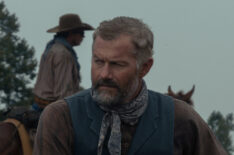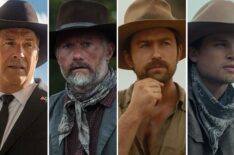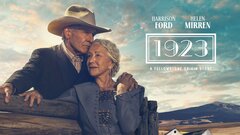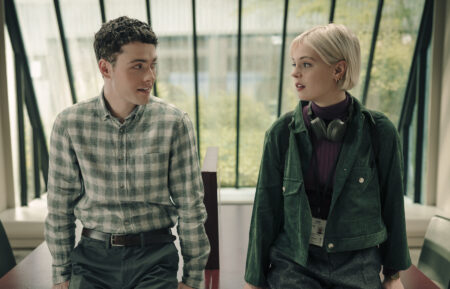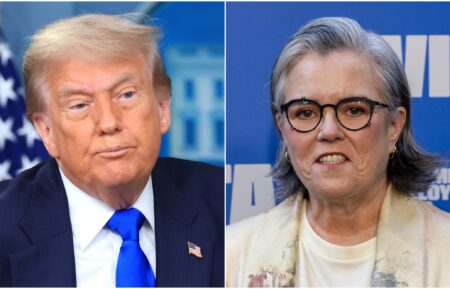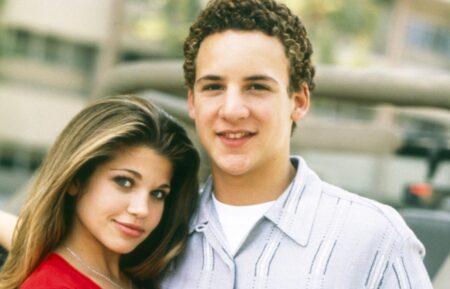Why ‘1923’ Star Sebastian Roché Apologized to Indigenous Cast on First Day of Filming
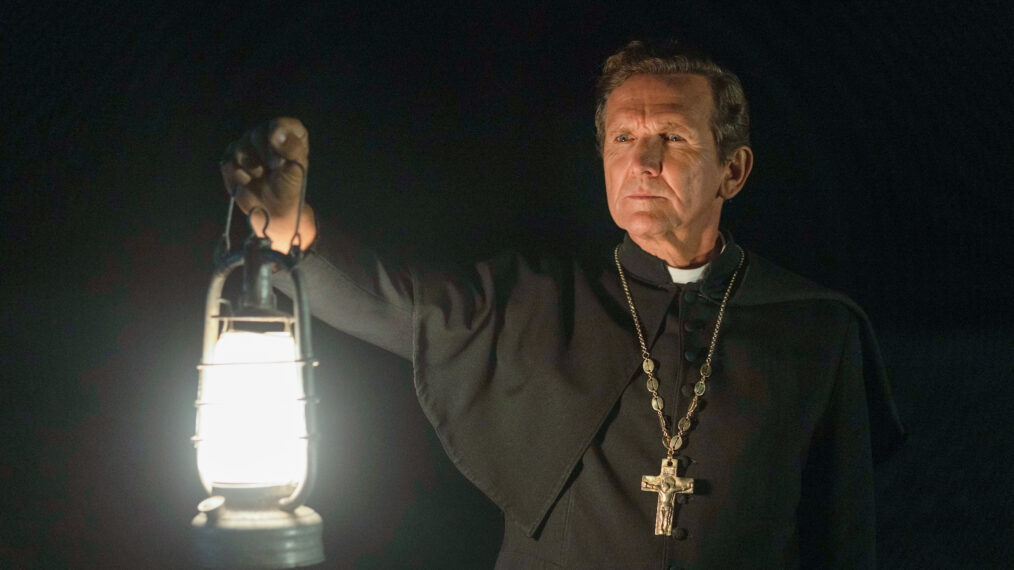
Q&A
[Warning: The following contains MAJOR spoilers for 1923 Episodes 1-4.]
When you’re retelling history, things can get bleak. That’s especially true in 1923, which features Aminah Nieves‘ Teonna Rainwater trying to break free from a Montana residential boarding school. She may have been successful in escaping (and killing Jennifer Ehle‘s Sister Mary) as of Episode 4, but viewers won’t know her fate until 1923 returns for the second half of its season on February 5.
Sebastian Roché plays Father Renaud, the Catholic priest in charge of the school that brutalizes its kidnapped students (all Native American girls from nearby tribes). And the physical, sexual, and mental abuse that takes place in the school as he and the nuns try to force these girls to assimilate to white Christian culture is already some of this year’s most harrowing scenes on TV (Nieves and Ehle previously discussed creating them with TV Insider).
Roché tells TV Insider he’s seen viewer comments saying that 1923 is getting too heavy-handed with its approach to the residential school storyline, but to that he says “Our business is not only entertainment, we need to tell stories.” Sometimes, those stories are of true events that are equally horrific.
To that end, 1923‘s residential school storyline is giving an “artistic challenge” to viewers. But what was it like to film these brutal sequences, that Roché says will get worse in future episodes? For him, it started with an apology to the cast’s Indigenous actors. Below, Roché tells us more.
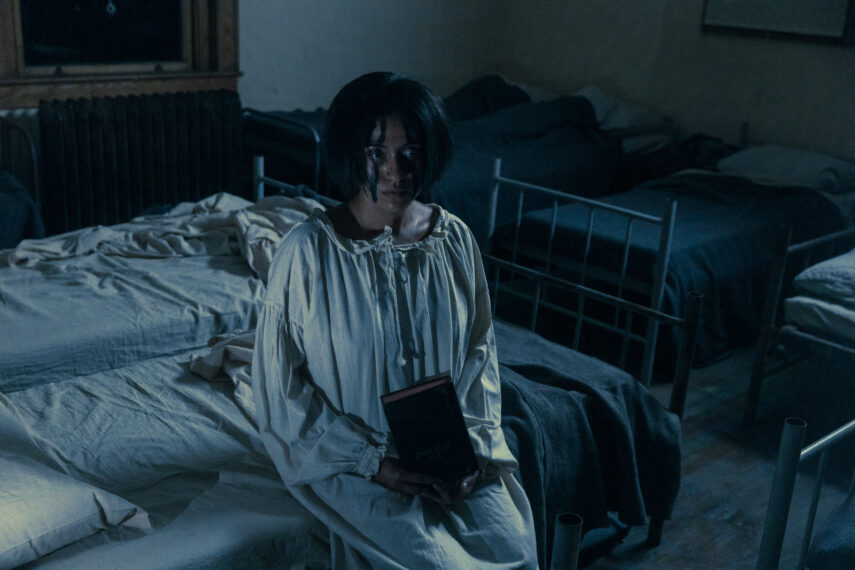
Emerson Miller/Paramount+
The appearances we’ve seen of you have been harrowing. Some viewers have said the residential boarding school scenes are too discomforting to watch. What do you think of the residential school storyline this season?
Sebastian Roché: The residential school storyline is primordial. It’s a very brave effort, I think. Taylor Sheridan [often highlights] the subject of reservations and the conditions which Native Americans are subjected to, the appalling conditions they’re subjected to, nowadays. But now we’re going back to 1923, and in 1923, those residential schools were a blight on our history. I think it’s a very important subject matter to talk about, because it’s something that we really don’t know about.
We only know about it now because of the news with our northern neighbors about the discovery of mass graves in residential schools [in Canada in 2022]. It’s a very timely and important subject to talk about. If you’re going to talk about the history of Montana, the Dakotas, and Wyoming, you have to involve the Native American history and its darkest chapters.
Editor’s Note: The United States government ran and funded residential boarding schools that forced Native American children out of their homes for more than 100 years, some open as recently as 1969. The schools were government-funded and church-run, mainly through Christian church leaders. Last year, the U.S. government launched investigations into possible mass graves containing the remains of Native American children killed at these schools, like those in Canada. At least 53 were found in May 2022. Officials expect to find more.
I spoke with your co-stars, Aminah Nieves and Jennifer Ehle, ahead of the premiere. And your scenes at the school in just the first episode are so brutal. What was that like for you to film?
I remember reading the script and going, “I understand the character’s a reprehensible character. He’s probably one of the most hateful characters I’ve ever played.” I usually play the bad guy [laughs]. But, you know, when you’re playing a vampire, you can suspend your disbelief, whereas with this, it was very important for me to get the work right, because you are recreating history. And actually, it gets worse in Episode 5.
Before certain scenes, Mo Brings Plenty — who’s a consultant on our show and is in Yellowstone — was in the room, and I was in a room full of young Native American girls. And basically, before I did anything, my instinct told me that I had to actually apologize before doing the scene. So I stopped everything and I said, “Before we do the scene, before we rehearse even, I would just like to say a few words.” I just turned to them and said, “I want to apologize to you, because we are about to recreate one of the darkest chapters in your history, besides of course, the genocide. And I just wanted to apologize in front of you, because this is a necessary chapter, but it must be very painful [to recreate].”
I had to do that before because I felt a responsibility as an actor to be as truthful as I could. We were going to shoot a scene of incomparable cruelty, and I needed to do it. It was a very emotional moment. Having read that scene a few weeks prior, I thought to myself, “How am I going to do this?” But then I thought to myself, “No, it’s important.” Oftentimes as an actor, you have the responsibility to recreate periods of history that are never talked about.
As actors, we can talk about the Tulsa Race Massacre in Oklahoma in shows like Watchmen — another very important period of history. I understand that these scenes are horrific to watch, but they’re necessary. It can’t always be shootouts and romance in our show. There is a serious matter we’re talking about. And Teonna Rainwater being the grandmother or relative of Thomas Rainwater [Gil Birmingham] of Yellowstone, I think it’s apropos to have.
Absolutely. Just based on the first couple of episodes we’ve seen in 1923, I think Teonna’s storyline in this spinoff will be the most important Indigenous peoples storyline that the show has unpacked so far. That, and when Monica helped catch the serial killer targeting Indigenous women in Yellowstone.
Definitely, and also the high level of suicides among women living on reservations that was also broached in Yellowstone. It was a very difficult subject, but something that need needed to be talked about.
For sure. And what was the reaction to your apology?
It’s not about my feelings, but it was received well. I have unbelievable respect for Mo. He’s a man of great stature in his community, and he really is a class act. I’ve admired him for a long time. I actually worked with his uncle, Dennis Banks, who was a leader of the American Indian Movement, on The Last of the Mohicans in 1991. I had great admiration for Dennis and Russell Means also, who was one of the leaders. He was really interesting. I actually found some old posters of Dennis and sent them to Mo. He was quite pleased with that.
I did the movie, but I ended up on the cutting room floor, which happens to every actor. But I had a wonderful experience shooting it for many weeks.
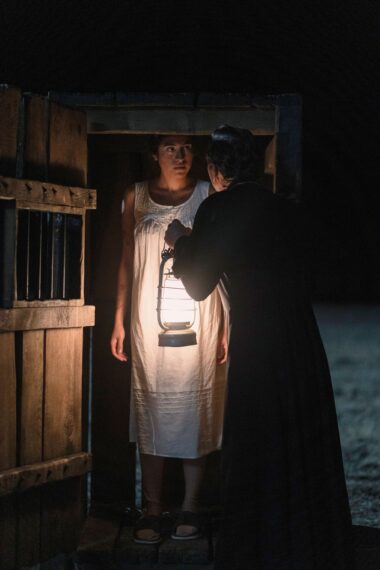
Emerson Miller/Paramount+
You’ve played a bad guy plenty of times before. How does Father Renaud compare to characters like Mikael from The Vampire Diaries or Balthazar from Supernatural?
As I was saying, when you are recreating history, it makes it all the more powerful and painful. Beyond being a fictional character, Mikael Mikaelson is a sort of invented species, so you can suspend your disbelief. I don’t know how many people I’ve killed as Mikael Mikaelson, probably thousands. But you don’t take it as seriously as when you’re recreating horrific history.
Let’s talk about Sister Mary for a little bit. In the first episode, we see Father Renaud punish Sister Mary for what she did to Teonna, which I thought was really surprising and unexpected. For a moment I thought he might defend Teonna, but then of course he didn’t. It doesn’t seem like he ever would.
Working with Jennifer — who I have admired for so many years, she’s such an extraordinary actress — that was a real treat. And for me, Aminah Nieves is the breakout. This cast is absolutely extraordinary. Of course, we’re talking about Harrison Ford, Helen Mirren, fabulous character actors like James Badge Dale and Marley Shelton, and then these new actors, Michelle Randolph and Julia Schlaepfer and Brandon Sklenar and Darren Mann and all the others.
I have to admit, Aminah truly has an unbelievable grasp of her character and such raw emotion and unbelievable instincts. I’m so proud of her for giving such an extraordinary performance. She really is a breakout star. It’s really wonderful to go one-on-one with her, an extraordinary scene partner.
To get back to the question, Father Renaud is one of these extreme ideologists, religious zealots who believes in the right of God, and that includes if one of yours oversteps their boundary, they should be punished. But also as that person has committed a crime against a sister by punching her in the face, she should also be punished as an example. He needs to have extreme discipline. He believes in extreme discipline. He believes that religion needs to be used as a forceful method to, as they say in the series, “get the Indian out of these children,” which is horrendous and has happened in many countries — in Australia, Africa.
We know the malfeasance of religion, over the thousands of years, which is why I think most of Europe now is not as religious as America. It’s a young country, America. They haven’t yet gone through the baptism of fire that we went through for thousands of years and the disappointments.
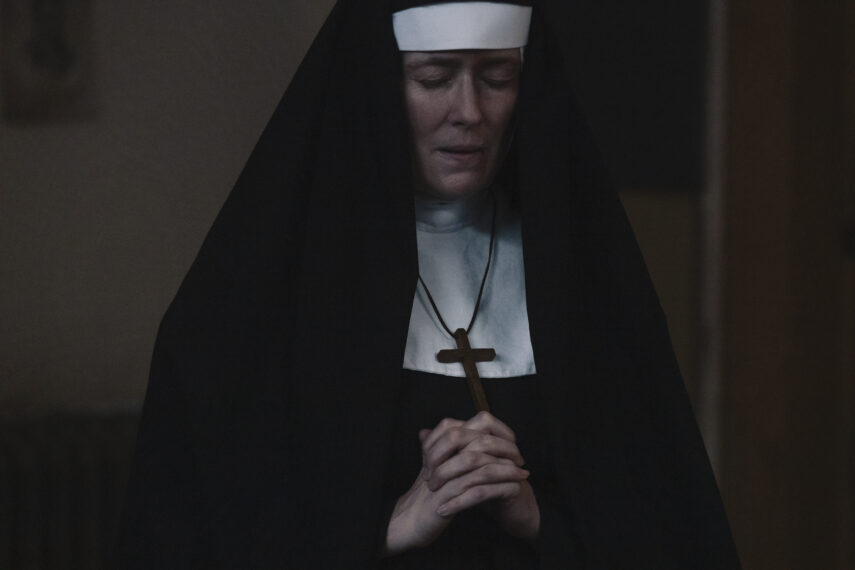
Emerson Miller/Paramount+
Also, let’s not mince our words, this man is a borderline psychopath. That’s always the problem when you put a uniform, whether it be a soldier’s uniform or a Catholic priest’s, on someone and give them a position of authority, they often overstep their position. And what I’ve read about residential schools is horrific. What I’m going to do in Episode 5 is pretty bad. And we’re not only talking about physical abuse, sexual abuse, mental abuse. We’re also talking about abuse in the name of what? In the name of God? [Laughs] The co-opting of religion, of the message, is just appalling. We’re talking about sociopathic tendencies in these people who were basically running a sociopathic patriarchy.
[Indigenous peoples] should be given way more. They should be given lands back and autonomous rights. It’s a shame [what has been done to Indigenous cultures]. It’s a stain on our society.
Right now, the residential school plot line is happening separate from the Dutton Ranch plot. I imagine we might see these worlds collide. What, if anything, can you say about that possibility?
You might be right. Your instincts might be truthful. You never know! It’s very interesting. Every episode is an extraordinary episode. I just can’t wait until the next. And having read it on the page, it’ll be so wonderful to see it on the screen. I truly enjoyed watching Episode 3 as a spectator. It was really fun.
1923, Returns Sunday, February 5, Paramount+

